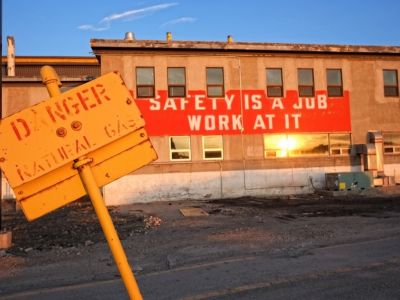Responsibility for Public Safety and the Obligation of Client Confidentiality (adapted from NSPE Case No. 90-5)

Tenants sue their building's owner, and the owner employs an engineer who finds structural defects not mentioned in the tenants' lawsuit. Issues of public safety versus client confidentiality.
Tenants in an apartment building sue the owners of the building in order to force them to repair a number of annoying, but not dangerous, problems. The owners' attorney hires Duchane, a structural engineer, to inspect the building and testify on behalf of the owner.
In the course of his inspection, Duchane discovers serious structural problems in the building, which are an immediate threat to the tenants' safety. These problems, however, are not mentioned in the tenants' suit.
What should Duchane do? Should Duchane report the information to the attorney? To the owner? To the tenants?
Suppose Duchane reports this information to the attorney, who tells Duchane to keep this information confidential because it could affect the lawsuit.
What should Duchane do now?
Is there a way to resolve the problem without compromising either Duchane's professional responsibility for the public safety or his obligation to preserve client confidentiality?
How do an engineer's professional obligations to preserve client confidentiality differ from those of a lawyer?
NSPE Code of Ethics An earlier version may have been used in this case.
See the original NSPE case at: Failure To Report Information Affecting Public Safety - Case No. 90-5.

